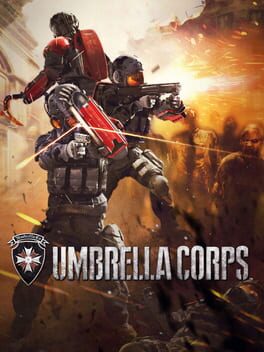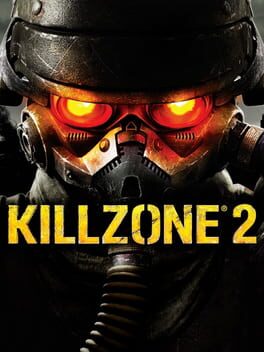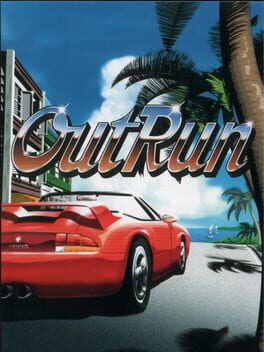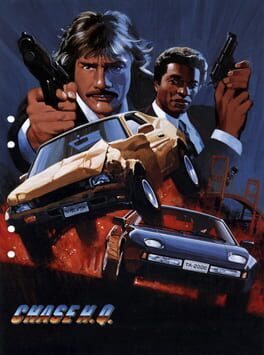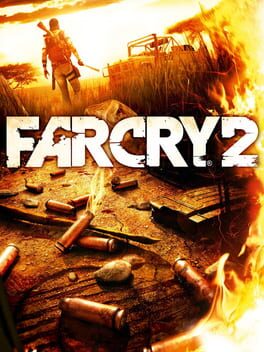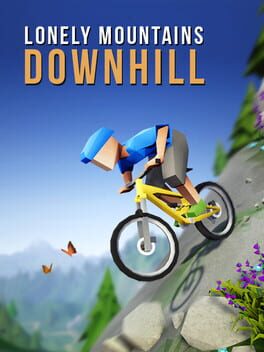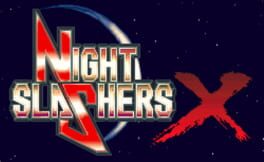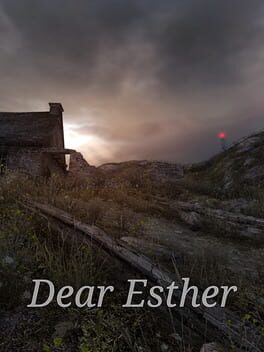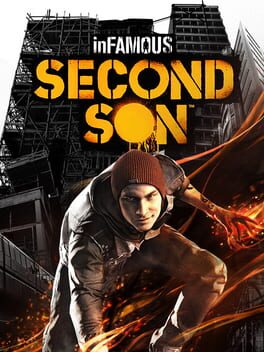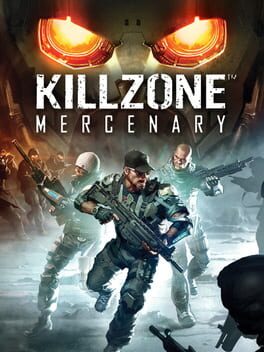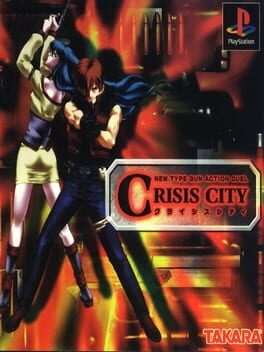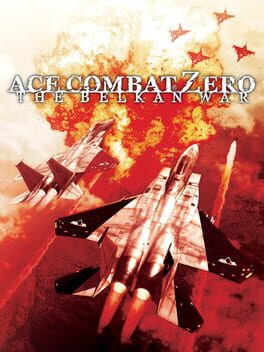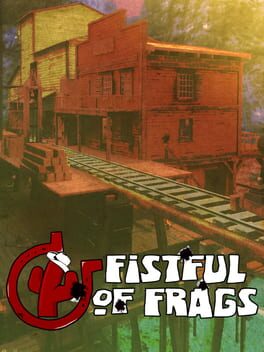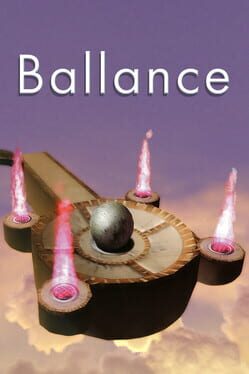KB0
2016
against all odds, i squeezed in multiple matches today on PC. i wasn't able to find anyone to link with for its admittedly interesting 4 survivors mode, but i managed to squad up with a few intrepid brazillians and was subsequently able to access a lot of regular team match games. team match is split into two playlists: there's one mode that's essentially permadeath, and there's a mode which rotates missions for your team to carry out successfully in which you have infinite lives. all of my experience was with the latter. as a result it's difficult to tell if umbrella corps is actually capable of living up to its tactical shooter billing, but my strong impression is that it isn't, which is why most of its extremely sparse, sporadically active community prefers the multi-mission mode. the game is so brisk in pace and so homogenous in its weapon selection that stopping for even a second to pretend it's truly tactical would be dishonest, radial menus rife with commands be damned. the modern warfare xp progression system similary disincentivizes even the slightest pretense of strategy here since you recognize you'll be locked out of some interesting tools for a while, and it won't be an even playing field while you're out there.
but as a scuzzy and unsanitized arcade deathmatch...it's honestly a good time. detach yourself from the nightmare unity engine vibes and what you find is a PVP/PVE title in which every map does its utmost to replicate the skin of your teeth scrambles inherent to rust in modern warfare 2. every map is small, cluttered, and anarchic, and the multi-mission mode is structured around completing various objectives in these cramped locales within short three minute windows. sometimes it's a traditional deathmatch; occasionally, it's oddball with briefcases; sometimes it's collecting DNA samples from UC's repertoire of enemies, pulled from all corners of the resident evil world, and from time to time you'll be playing king of the hill. it's a roll of the dice every time, but it's varied enough in these offerings to keep things exciting. getting used to the wildly shifting perspectives and claustrophobic field of view is arguably the toughest adjustment, but it effectively complements frenzied close-quarters skirmishes, arguably makes this one of the only third person shooters i've played in which toggling which over-the-shoulder perspective you resort to is important, and denies you an ease of environmental legibility which would reduce tension. it's impossible to overstate just how quickly you move in this game; even crawling prone is faster than crouchwalking in some games. my favourite implementation here is a jammer auto-equipped on each player. while the jammer's active, the zombies present in a level will ignore you, but if you take enough oncoming damage to break the jammer, every single one of those NPC enemies will start descending on you at once. it's insane. i kind of feel like multiplayer games forgot to have decent soundtracks over the years too, so it's nice to revisit all of these recontextualized locales from past entries and listen to some throbbing tunes. just running around the village from RE4 with my bizarre sci-fi ice axe and parrying opponents who try to swing at me with their bizarre sci-fi ice axe. lovely.
it remains a highly difficult game to recommend because there are basically only ten people, if that, left playing it...similarly, its single player mode is in shambles, existing as nothing more than repackaged multiplayer mechanics absent of the mayhem other players can provide. i like it though. it just needs like, thorhighheels level clout to have some form of multiplayer renaissance. that's not my job, it's his.
but as a scuzzy and unsanitized arcade deathmatch...it's honestly a good time. detach yourself from the nightmare unity engine vibes and what you find is a PVP/PVE title in which every map does its utmost to replicate the skin of your teeth scrambles inherent to rust in modern warfare 2. every map is small, cluttered, and anarchic, and the multi-mission mode is structured around completing various objectives in these cramped locales within short three minute windows. sometimes it's a traditional deathmatch; occasionally, it's oddball with briefcases; sometimes it's collecting DNA samples from UC's repertoire of enemies, pulled from all corners of the resident evil world, and from time to time you'll be playing king of the hill. it's a roll of the dice every time, but it's varied enough in these offerings to keep things exciting. getting used to the wildly shifting perspectives and claustrophobic field of view is arguably the toughest adjustment, but it effectively complements frenzied close-quarters skirmishes, arguably makes this one of the only third person shooters i've played in which toggling which over-the-shoulder perspective you resort to is important, and denies you an ease of environmental legibility which would reduce tension. it's impossible to overstate just how quickly you move in this game; even crawling prone is faster than crouchwalking in some games. my favourite implementation here is a jammer auto-equipped on each player. while the jammer's active, the zombies present in a level will ignore you, but if you take enough oncoming damage to break the jammer, every single one of those NPC enemies will start descending on you at once. it's insane. i kind of feel like multiplayer games forgot to have decent soundtracks over the years too, so it's nice to revisit all of these recontextualized locales from past entries and listen to some throbbing tunes. just running around the village from RE4 with my bizarre sci-fi ice axe and parrying opponents who try to swing at me with their bizarre sci-fi ice axe. lovely.
it remains a highly difficult game to recommend because there are basically only ten people, if that, left playing it...similarly, its single player mode is in shambles, existing as nothing more than repackaged multiplayer mechanics absent of the mayhem other players can provide. i like it though. it just needs like, thorhighheels level clout to have some form of multiplayer renaissance. that's not my job, it's his.
2009
as far as this particular lineage of call of duty-influenced single player first person shooter campaigns goes, killzone 2 is top of the line and is consistently underappreciated and devalued for it. machinegames scattershot efforts with the new wolfenstein saga could only dream of approaching this level of lumbering oppressiveness, this heavyweight orchestration of life and limb struggle with fearsome artillery that takes the drab grit and muddy colour palette common to the seventh generation of shooters and molds it into a bold statement. lightning in a bottle for an otherwise bad franchise, testament to the value of aesthetics in a shooter
im stunned this version of outrun doesn't get more recognition. it's really pretty excellent, existing as an unabridged remake of outrun in the sega ages budget line for the PS2...but it's more akin to a sequel. the original arcade mode, whether you prefer to play a jpn cabinet or 'overseas', can still be accessed, of course, and there have been a few minor tweaks so as to maximize outrun's tranquil and contemplative atmosphere - checkpoints grant just a few more seconds of bonus time, crashes send you hurtling forward with increased momentum, switching gears is a bit more trouble-free. time and difficulty can also be tweaked as well, so this is really outrun as the ultimate carefree experience. but this iteration also throws in a time attack mode and an 'arrange' mode with three newly implemented remixes of outruns triumvirate of songs that sees you take on a diamond shaped route as opposed to a pyramid. while it always ends in the same way, there are more sights to see and routes to take that make full use of the PS2's capabilities, and sega made the smart decision of re-implementing rivals from turbo outrun. they won't steal your girlfriend this time but they're legitimately challenging foes that offer a bit more nuance to route selection and scoring, especially if one's aim is to take down all seven rivals. in the scenario that you've let the rivals slip, if you want to surpass them you'll have no choice but to follow them through branching paths which often means you wont find yourself taking the same few paths time and time again...it becomes outrun configured as close to pure instinct.
it's probably actually deserving of a 5/5, but ill sit on it for a while; it's obviously not quite as visually appealing and how you feel about your vehicle's size and distance from the camera in relation to the original might vary from one playthrough to the next. still, this is a complete and total iteration of an arcade classic, retaining that 80's spark of adventure and mastery over play-induced zen.
it's probably actually deserving of a 5/5, but ill sit on it for a while; it's obviously not quite as visually appealing and how you feel about your vehicle's size and distance from the camera in relation to the original might vary from one playthrough to the next. still, this is a complete and total iteration of an arcade classic, retaining that 80's spark of adventure and mastery over play-induced zen.
1988
surprised to see not too many people have played this given its place in arcade history. anyways, undeniably one of the most 80s games of all time. miami vice-esque buddy cop outrun sim where you take down escaping criminals, thwarting the machinations of kidnappers, mobsters, and eastern bloc spies alike. also unbelievably phallic, not just in the central conceit of smashing another car from behind but also every time you successfully hit the target vehicle your partner will say things like 'pleaaaaaase!', 'oh man!!!!', 'bear down!!!', 'more, push it more!!!' etc. not especially good, this aside
2008
...if anything, it's not punishing enough? currently struggling to make it much further in this game - wonderful environment and aesthetics, the gold standard for map usage in video games, tightly balanced player-defiant mechanics and intriguing metanarrative elements intertwine into anathema for the modern open world experience, and yet for every stroke of genius and for every emergent design decision there is there exists something equally repellent. learning that malaria is an obfuscated level up mechanic was the breaking point for me and the artifice only piled up from there. a genuine shame - during that brief illusory period where i felt every inconvenience to be true and every threat to be hazardous, the game shone like a diamond
https://twitter.com/w_guppy/status/1382287033838792707?s=19
i can't rightly say if it's simply a case of my absence from games due to academic obligation or what over the course of the past month, but lonely mountains is just superbly refreshing and taut, something like petrichor for my self-imposed exodus. sure, you'll still be made to do challenges and deal with progression for epic customization but at least the title is never abrasive about it. instead with precision cycling you make your way down several serene mountains, at first as a wayward explorer and later as an adrenaline junkie carving the most efficient routes down the mountain possible. the soundscape is ambient and sparse in the best possible way, with these rendered environments coming across as painterly; little splashes of colour and brushstrokes serve to implicitly guide the eye towards where the next shortcut might be. the camera rides in tow, giving players a perspective of how vast and beautiful these biomes are while also contributing greatly to both thrill and discovery. and there's even joy in failure, as dashing your intrepid cyclist against the rocks often leads to some good ol' ragdolling goofs. just the perfect game to wake up to with a cup of coffee
of the games ive played this year, the most similar analogues are a short hike and descenders; it goes without saying that im currently enjoying my time with this little beaut so much more than those. bliss
i can't rightly say if it's simply a case of my absence from games due to academic obligation or what over the course of the past month, but lonely mountains is just superbly refreshing and taut, something like petrichor for my self-imposed exodus. sure, you'll still be made to do challenges and deal with progression for epic customization but at least the title is never abrasive about it. instead with precision cycling you make your way down several serene mountains, at first as a wayward explorer and later as an adrenaline junkie carving the most efficient routes down the mountain possible. the soundscape is ambient and sparse in the best possible way, with these rendered environments coming across as painterly; little splashes of colour and brushstrokes serve to implicitly guide the eye towards where the next shortcut might be. the camera rides in tow, giving players a perspective of how vast and beautiful these biomes are while also contributing greatly to both thrill and discovery. and there's even joy in failure, as dashing your intrepid cyclist against the rocks often leads to some good ol' ragdolling goofs. just the perfect game to wake up to with a cup of coffee
of the games ive played this year, the most similar analogues are a short hike and descenders; it goes without saying that im currently enjoying my time with this little beaut so much more than those. bliss
TBD
originally had this scored as much lower because the author of the thread where you can download this recommended you try out a much rougher version first because it's more challenging, and not the rebalanced 1.31 version that's actually fun to play and teaches you its systems. imagine that!
this is an interesting one. night slashers x is a fanmade revision of data east's night slashers, replete with the usual tweaks and adjustments you'd see in a project like this such as widescreen support and a four player co-op mode. but they've also made a significant overhaul to the original game's rather simplistic suite of mechanics. the original night slashers was essentially a final fight clone (honghua's animations are without exaggeration 1:1 with guy's). so aside from the horror trappings which inform its aesthetic, the only component distinguishing it from a bevy of similarly inclined beat em ups is its treasure-lite sensibilities. mob waves are intense, difficult, and uncompromising, but boss encounters are plentiful, fair, & challenging. night slashers is very much a beat em up which reduces its capability for player expression as a result of teetering-on-unfair encounter design, but the end result is a manageable title which asks the player to strip down to only the barest necessities for each combat encounter and to carefully engage in hitbox outfighting and counterpunching. of course, this description reflects the game at its best when more careful examination reveals this may not exactly have been the intention. there's a suite of chargeable attacks which are almost completely incompatible with the title's whims; charging takes far too long and enemies are far too zealous in approach, rendering it largely superfluous as a means of offence. likewise, your two shmup bomb-eque special attacks are both conveniently introduced 'get-off-me' panic buttons which decimate the calvaries of the dead while incurring significant damage to the player, which should act as a deterrant to player abuse, but can quickly be overcome through modern emulated credit feeding. even disregarding that, it's still clearly a mechanic introduced through necessity in a game with mobs as dense as these. these mechanics both depict a game that isn't exactly designed sharply, or even with honest intentions at heart, but with the right mindset one learns to quickly ignore these infelicities. you surpass night slashers by rarely resorting to the charge attacks, having a plan for every encounter, and using foreknowledge of the stages to manage health for future encounters - you have to know ahead of time when is the best moment to strike with a special attack. the end result is a simplistic & snappy albeit broken game that nevertheless manages to thrill with its contradictory ruleset.
X, meanwhile, should be the better beat 'em up in theory. widescreen support allows for increased environmental legibility and allows for more careful circumnavigation of mobs, rebalancing some encounters means they often do not skew as much towards nickel-and-diming you, and there's an immense amount of additional content this time around. but i think it's also just this complete and total testament to fangame maximalism. every new mechanic under the sun that could have been implemented is here. wake-up attacks, recovery, blocking, dodging, counters, input commands, smash bros-esque combo strings and grabs, a meter bar separate from HP tied to your specials, risk/reward mechanics tied to regaining meter, counterhits...the list goes on. likewise, this is the most insane roster of guest characters ever conceived? ash williams from the evil dead, i understand, but what's ortega from saturday night slam masters doing here? or kurokishi from guardians: denjin makai ii? or aska from tournament fighters? it boggles the mind. total indulgence. it's technically a bit more fairly designed, but it's this immense deluge of newly introduced options and heaps of 'polish' that ironically detracts from the kinetic flair of the original night slashers, irrespective of any enjoyment to be had here. the length of the campaigns are vaguely similar despite some extended segments or newly introduced levels in X - so why does it feel like X is so, so much longer than the original?
at the very least, as a fangame, this is an impressive effort - and it's a better translation of what makes the original night slashers enjoyable than streets of rage remake is for that franchise. but sometimes less is more, and maybe sometimes cruel is more, too.
this is an interesting one. night slashers x is a fanmade revision of data east's night slashers, replete with the usual tweaks and adjustments you'd see in a project like this such as widescreen support and a four player co-op mode. but they've also made a significant overhaul to the original game's rather simplistic suite of mechanics. the original night slashers was essentially a final fight clone (honghua's animations are without exaggeration 1:1 with guy's). so aside from the horror trappings which inform its aesthetic, the only component distinguishing it from a bevy of similarly inclined beat em ups is its treasure-lite sensibilities. mob waves are intense, difficult, and uncompromising, but boss encounters are plentiful, fair, & challenging. night slashers is very much a beat em up which reduces its capability for player expression as a result of teetering-on-unfair encounter design, but the end result is a manageable title which asks the player to strip down to only the barest necessities for each combat encounter and to carefully engage in hitbox outfighting and counterpunching. of course, this description reflects the game at its best when more careful examination reveals this may not exactly have been the intention. there's a suite of chargeable attacks which are almost completely incompatible with the title's whims; charging takes far too long and enemies are far too zealous in approach, rendering it largely superfluous as a means of offence. likewise, your two shmup bomb-eque special attacks are both conveniently introduced 'get-off-me' panic buttons which decimate the calvaries of the dead while incurring significant damage to the player, which should act as a deterrant to player abuse, but can quickly be overcome through modern emulated credit feeding. even disregarding that, it's still clearly a mechanic introduced through necessity in a game with mobs as dense as these. these mechanics both depict a game that isn't exactly designed sharply, or even with honest intentions at heart, but with the right mindset one learns to quickly ignore these infelicities. you surpass night slashers by rarely resorting to the charge attacks, having a plan for every encounter, and using foreknowledge of the stages to manage health for future encounters - you have to know ahead of time when is the best moment to strike with a special attack. the end result is a simplistic & snappy albeit broken game that nevertheless manages to thrill with its contradictory ruleset.
X, meanwhile, should be the better beat 'em up in theory. widescreen support allows for increased environmental legibility and allows for more careful circumnavigation of mobs, rebalancing some encounters means they often do not skew as much towards nickel-and-diming you, and there's an immense amount of additional content this time around. but i think it's also just this complete and total testament to fangame maximalism. every new mechanic under the sun that could have been implemented is here. wake-up attacks, recovery, blocking, dodging, counters, input commands, smash bros-esque combo strings and grabs, a meter bar separate from HP tied to your specials, risk/reward mechanics tied to regaining meter, counterhits...the list goes on. likewise, this is the most insane roster of guest characters ever conceived? ash williams from the evil dead, i understand, but what's ortega from saturday night slam masters doing here? or kurokishi from guardians: denjin makai ii? or aska from tournament fighters? it boggles the mind. total indulgence. it's technically a bit more fairly designed, but it's this immense deluge of newly introduced options and heaps of 'polish' that ironically detracts from the kinetic flair of the original night slashers, irrespective of any enjoyment to be had here. the length of the campaigns are vaguely similar despite some extended segments or newly introduced levels in X - so why does it feel like X is so, so much longer than the original?
at the very least, as a fangame, this is an impressive effort - and it's a better translation of what makes the original night slashers enjoyable than streets of rage remake is for that franchise. but sometimes less is more, and maybe sometimes cruel is more, too.
2012
theres little reason to be hyperbolic in dismantling this title but chinese rooms school of design back in the day aspired to a subversion of norms and convention. an attempt to shrug off perceived limitations and supposedly counterfeit worlds and supplant them with something more poignant, expressive. unfortunately this approach rather paradoxically furthered the artifice of their game worlds, and if it didn't hold up on release when compared to then-contemporaries like journey, it has most certainly not held up today. cannot regard a game as haunting if at every turn i feel the hand of its masters, if at every moment im confronted with its castration. pageantry
2014
one respectable trait of sucker punch's manifests through the primacy of play. in contrast to several other analogous high-profile western studios, SP constructs their worlds with an eye for tactile engagement, with the simple joys of robust maneuverability and responsive action superseding any lofty ambitions or claims to prestige. as the studio found themselves ensnared by the demands of seventh generation AAA gaming, it's this innate sense of play that carried them through two largely middling superhero titles - fully formed open worlds, dozens of collectibles leading to upgrades, binary morality designed to feign depth and enhance replayability, and so on are all cornerstones of the infamous franchise, but where other titles may snuff out their sense of play (ironically in service of the age-old game design adage of 'finding the fun') infamous, especially the first title, encouraged it. responsive platforming, scaling intricate vistas, grinding on rails to speed around town instead of relying on vehicles, a litany of 'stunts' that encouraged anarchic combat experimentation, a steady sense of progression against a perfunctory rogues gallery, and even the craven and utterly gamified triteness of its morality system all amounted to a title that, impossibly, added to more than the sum of its parts. any title with a morality system as exploitable as the first games does not demand interrogation but instead derision followed by acceptance - goodness measured by the act of repeatedly maiming and then healing empire citys impoverished denizens. when the narrative amounts to a simple twist, that you're working against yourself, the experience is neatly dovetailed in the most undeserving and undignified way, but one that lends to its charm quite nicely.
these aforementioned elements are what make second son not just disappointing, but staggeringly bad as it suffers not only from franchise fatigue (crushed under the weight of its bullet point list of Systems(tm) and Features(tm)) but from a complete and total lack of care or ambition. combat is a downgrade, progression takes a hit, all powers are not only comparable in their kits but also in the sense that they're designed for visual fidelity rather than in service of play...even leaving aside the utterly abysmal representation of indigenous communities in its writing this is one of the worst narratives of the eighth gen, one that seems to be constantly at odds with its mechanics and presentation. infamous was for better or worse focused entirely on the minutiae of the individual and extrapolating its base of mechanics wholesale to relay a narrative of systemic upheaval is arrogant, naive, and consistently contradictory, which are traits that inform the titles uniformly bad attempts at characterization which hardly seem worth getting into at length. delsin should serve as our lens into this world and he's never once afforded a nuanced or complicated perspective, slotting everything into extremist binaries that seem totally at odds with the concept of his character. the most frustrating element at play here is these same systems could find worth by interpolating SMT's hallmark law/chaos binary if the title had to operate in much the same way which could not only inject new life into the franchise but is in almost every way imaginable more sensible for the narrative on offer here. instead second son is the worst kind of game - creature comforts made to push hardware sales, not daring enough to imagine but instead preferring to con its playerbase into believing its paltry attempts at evolution, perfectly encapsulated by the title being set in sucker punchs hometown of seattle yet making no attempt whatsoever to represent indigenous communities sensibly
these aforementioned elements are what make second son not just disappointing, but staggeringly bad as it suffers not only from franchise fatigue (crushed under the weight of its bullet point list of Systems(tm) and Features(tm)) but from a complete and total lack of care or ambition. combat is a downgrade, progression takes a hit, all powers are not only comparable in their kits but also in the sense that they're designed for visual fidelity rather than in service of play...even leaving aside the utterly abysmal representation of indigenous communities in its writing this is one of the worst narratives of the eighth gen, one that seems to be constantly at odds with its mechanics and presentation. infamous was for better or worse focused entirely on the minutiae of the individual and extrapolating its base of mechanics wholesale to relay a narrative of systemic upheaval is arrogant, naive, and consistently contradictory, which are traits that inform the titles uniformly bad attempts at characterization which hardly seem worth getting into at length. delsin should serve as our lens into this world and he's never once afforded a nuanced or complicated perspective, slotting everything into extremist binaries that seem totally at odds with the concept of his character. the most frustrating element at play here is these same systems could find worth by interpolating SMT's hallmark law/chaos binary if the title had to operate in much the same way which could not only inject new life into the franchise but is in almost every way imaginable more sensible for the narrative on offer here. instead second son is the worst kind of game - creature comforts made to push hardware sales, not daring enough to imagine but instead preferring to con its playerbase into believing its paltry attempts at evolution, perfectly encapsulated by the title being set in sucker punchs hometown of seattle yet making no attempt whatsoever to represent indigenous communities sensibly
2013
mercenary trades in the claustrophobia and heavyweight physicality of killzone 2 with a futuristic and tech-savvy sheen communicated by means of brighter environments and a domineering user interface. the contrast is generally in accordance with the venal impulses of mercenary's campaign; 2's approach to the war theater, marked by excessive grime, endless soot, and the threat of red eyes piercing the veil of dust, is perhaps better suited for the life of a grunt soldier.
still, it was a surprise to see how many of the little flourishes animating killzone at its best (by which i mean 2, and pretty much only 2) were present in mercenary. movement is still largely bulky and encumbered; this is still a shooter that rewards hip fire; weaponry is animated so as to give the impression that at any perilous moment they could malfunction completely, their power too great for feeble hands. even so, mercenary reflects a more digital approach to warfare, denoted largely by the extensive tools at your disposal, the reduction of all enemies into incoming profit, and the portable nature of the vita itself. if the medium is the message, then mercenary, which seamlessly blends together a very traditional control scheme with touchscreen controls in a convenient portable environment seems to demonstrate a kind of uncanny trait not quite present in some other shooters. given that the narrative crux of the game is in part to protract the war so as to establish a foothold in its gun-for-hire market i don't think im necessarily wrong to point that out; it feels casually inhumane in a way killzone 2 doesn't.
of course, it should be said that, for better or worse, the work of a mercenary seems to present fertile grounds for video games on which the foundation can be set for harmonious interactions between systems and narrative. with combat and commerce fueling every exchange players can ensure they're earning more profit to accrue more resources by partaking in constant battle. the loop of growth and accumulation bolsters the loop of running and gunning, and as portable games promise wanton fun and endless playability, it's only fitting that a mercenary premise was chosen for a spin-off. the dev team seems to have shown full consideration for this by structuring the campaign through allegiance osmosis, setting the games battles to coincide with key events in 2 and 3, and reusing assets where it can be deemed necessary. all told, it's a game that checks the boxes, but not one that necessarily inspires or compels. it's telling that despite being the games amoral center the game makes implicitly clear that you, as the player character, are fighting for, ostensibly, the right thing. both sides of the conflict aim to bring a quick end to the war through means of crimes against humanity; you taking a stand against that should be read as self-preservation and enterprising behaviour rather than fighting for any lofty ideals, but the introduction of a little shitkid you have to protect kind of relents and signals that your deeds are rooted in heroism more than anything else. of course it's all a pretty schlocky premise to begin with but it's nice when things commit to what they already are rather than try to have their cake and eat it too. compare this to the mercenary work of something like ace combat zero, where your allegiance to a particular faction never changes most likely because they remain the highest bidder, but your actions within that frame of time - whether you were a consummate professional or a destructive tyrant - are constantly contested and questioned in-universe, with neither approach representing a clean or savoury stance on combat.
solid romp overall, just barely enough to actually like. visuals somehow still hold up with a certain charm to them but mission structure usually devolves into the same three things
still, it was a surprise to see how many of the little flourishes animating killzone at its best (by which i mean 2, and pretty much only 2) were present in mercenary. movement is still largely bulky and encumbered; this is still a shooter that rewards hip fire; weaponry is animated so as to give the impression that at any perilous moment they could malfunction completely, their power too great for feeble hands. even so, mercenary reflects a more digital approach to warfare, denoted largely by the extensive tools at your disposal, the reduction of all enemies into incoming profit, and the portable nature of the vita itself. if the medium is the message, then mercenary, which seamlessly blends together a very traditional control scheme with touchscreen controls in a convenient portable environment seems to demonstrate a kind of uncanny trait not quite present in some other shooters. given that the narrative crux of the game is in part to protract the war so as to establish a foothold in its gun-for-hire market i don't think im necessarily wrong to point that out; it feels casually inhumane in a way killzone 2 doesn't.
of course, it should be said that, for better or worse, the work of a mercenary seems to present fertile grounds for video games on which the foundation can be set for harmonious interactions between systems and narrative. with combat and commerce fueling every exchange players can ensure they're earning more profit to accrue more resources by partaking in constant battle. the loop of growth and accumulation bolsters the loop of running and gunning, and as portable games promise wanton fun and endless playability, it's only fitting that a mercenary premise was chosen for a spin-off. the dev team seems to have shown full consideration for this by structuring the campaign through allegiance osmosis, setting the games battles to coincide with key events in 2 and 3, and reusing assets where it can be deemed necessary. all told, it's a game that checks the boxes, but not one that necessarily inspires or compels. it's telling that despite being the games amoral center the game makes implicitly clear that you, as the player character, are fighting for, ostensibly, the right thing. both sides of the conflict aim to bring a quick end to the war through means of crimes against humanity; you taking a stand against that should be read as self-preservation and enterprising behaviour rather than fighting for any lofty ideals, but the introduction of a little shitkid you have to protect kind of relents and signals that your deeds are rooted in heroism more than anything else. of course it's all a pretty schlocky premise to begin with but it's nice when things commit to what they already are rather than try to have their cake and eat it too. compare this to the mercenary work of something like ace combat zero, where your allegiance to a particular faction never changes most likely because they remain the highest bidder, but your actions within that frame of time - whether you were a consummate professional or a destructive tyrant - are constantly contested and questioned in-universe, with neither approach representing a clean or savoury stance on combat.
solid romp overall, just barely enough to actually like. visuals somehow still hold up with a certain charm to them but mission structure usually devolves into the same three things
1998
crisis city is most easily comparable to shock troopers. like shock troopers, there's a bevy of characters to embody who must each traverse linear environments with aplomb, dodging their way through the tumult of gunfire and shrapnel. the difference lies predominantly in perspective and framing. unlike shock troopers, which concerned itself with jungles and mountainous ranges and military structures, in crisis city the characters must dash through littered city streets, highways, grungy parking garages, and opulent edifices with nothing but their wits and 30 or so grenades. in addition to this, shock troopers is an isometric 2D run n' gun; crisis city, by contrast, is 3D, using fixed camera angles to convey its hectic action.
i dont think i can classify it as a hidden gem; rather than succeeding mechanically it is primarily exhilirating aesthetically. i wish so bad i could tell you what's going on here. before the game begins in earnest, there are three separate text scrawls: one you may skip that goes on for three minutes, a second introducing the character you have chosen, and a third outlining the first level (although each stage is introduced in this manner). on top of that, you fight the rest of the games playable cast as bosses in each stage, and ramiel is here, unexpectedly. there's clearly some kind of madcap narrative unfolding in the midst of the chaos onscreen, usually involving no less than twenty explosions per boss battle lighting up the screen in rhythmic tempo. so believe me when i say that when the game looks like an electrifying canvas, it usually kind of does!
unfortunately, there are a few too many issues with the game to really consider it anything more than a middle-of-the-pack run and gun, if that. the fixed camera angles are sometimes obstructive despite their visual intrigue; you can dodge roll to avoid enemy bullet patterns, but you can also crouch which seems to beat out almost everything; and the enemy design, as well as the difficulty curve, seem borderline nonexistent. a lot of this title is just kind of barren despite the adrenaline coursing through its veins.
my brief foray into research seems to suggest there's some contention over whether or not this game is kusoge. i'm not too sure about this. it's hard to deny the heart and soul of this kind of jank. it's picturesque, in a way; there are brief moments where it really does succeed in pulling you in and bewitching you. and at the end of the day it's pure unadulterated and unpredictable mania. clearly the developers agreed to an extent, otherwise there wouldn't be a versus mode nor would there be a time attack mode to fool around in. but i do worry sometimes that we don't have the language to really dissect or scrutinize any of these more obscure titles, with our constant urge to reframe, recontextualize, reassess. these games have value simply by virtue of their existence. i didnt go into crisis city expecting a new favourite - i came in because i was interested and i wanted it to show me a good time. and it did. and now i want to play shock troopers.
also it seems to sample the house of the dead 2 boss theme? well, it's more likely both share the same sample but it's so weird that i heard it, instantly paused, and thought 'wait a minute...'
i dont think i can classify it as a hidden gem; rather than succeeding mechanically it is primarily exhilirating aesthetically. i wish so bad i could tell you what's going on here. before the game begins in earnest, there are three separate text scrawls: one you may skip that goes on for three minutes, a second introducing the character you have chosen, and a third outlining the first level (although each stage is introduced in this manner). on top of that, you fight the rest of the games playable cast as bosses in each stage, and ramiel is here, unexpectedly. there's clearly some kind of madcap narrative unfolding in the midst of the chaos onscreen, usually involving no less than twenty explosions per boss battle lighting up the screen in rhythmic tempo. so believe me when i say that when the game looks like an electrifying canvas, it usually kind of does!
unfortunately, there are a few too many issues with the game to really consider it anything more than a middle-of-the-pack run and gun, if that. the fixed camera angles are sometimes obstructive despite their visual intrigue; you can dodge roll to avoid enemy bullet patterns, but you can also crouch which seems to beat out almost everything; and the enemy design, as well as the difficulty curve, seem borderline nonexistent. a lot of this title is just kind of barren despite the adrenaline coursing through its veins.
my brief foray into research seems to suggest there's some contention over whether or not this game is kusoge. i'm not too sure about this. it's hard to deny the heart and soul of this kind of jank. it's picturesque, in a way; there are brief moments where it really does succeed in pulling you in and bewitching you. and at the end of the day it's pure unadulterated and unpredictable mania. clearly the developers agreed to an extent, otherwise there wouldn't be a versus mode nor would there be a time attack mode to fool around in. but i do worry sometimes that we don't have the language to really dissect or scrutinize any of these more obscure titles, with our constant urge to reframe, recontextualize, reassess. these games have value simply by virtue of their existence. i didnt go into crisis city expecting a new favourite - i came in because i was interested and i wanted it to show me a good time. and it did. and now i want to play shock troopers.
also it seems to sample the house of the dead 2 boss theme? well, it's more likely both share the same sample but it's so weird that i heard it, instantly paused, and thought 'wait a minute...'
knights at the round table, and the unseen, unheard figures and machinations animating their movements and dismantling their legend. it's ironic that the arthurian myth lens that frames the narrative means that the game is necessarily skewed towards fable and folklore in a way that AC5 had already attempted to, but 0 provides far more fertile ground - there's a wealth of generative potential buried here, i think, in a way that's proven difficult to write about but is central to the text (particularly as it relates to codes of honor and wartime engagement but im not deluded enough to pretend i know much beyond the bare essentials of arthurian legend). but there's a lot of moving parts here, so personally i think its greatest success is reconfiguring AC3s framework (emphasis on simulation, expertly grounding its thematic heft on a silent protagonist (cipher lol) piloting aerial death machines) through the lens of 90s post soviet armed conflict and trying to better understand a period marked by great political uncertainty and loss of life. however in doing so 0s concerns feel far more individually oriented and i think politics are felt here largely as a specter orchestrating every sortie; pilots try to exercise autonomy here because they've had the skies bequeathed to them but it's like its instead their prison. there's a sense that even as the documentarian/archivist narrator conducts interview after interview attempting to ascertain some kind of truth on the belkan war (disseminated through glorious FMVs) it's futile to totally encapsulate and it matters less than the surprisingly well-realized individuals caught up in the conflict, the truths they extracted from the war and how they've continued to live outside of war. anyways. tricky game. complicated and cynical and messy in ways i appreciated. obsessively dedicated to its premise in the best possible way. spanish flamenco guitars. my fave of the games ive played this year
also the 'morality' system (if you can call it that, im still not convinced) isn't corny it's part and parcel of what the game is attempting to say and i appreciated its passivity and complete lack of judgment. one of the top five final bosses of all time but that goes without saying
also the 'morality' system (if you can call it that, im still not convinced) isn't corny it's part and parcel of what the game is attempting to say and i appreciated its passivity and complete lack of judgment. one of the top five final bosses of all time but that goes without saying
2007
classics in unbalanced source mod design. all you do is scream at your boys and then try to knock people flat on their ass because more difficult kills result in higher notoriety, which is the actual point value placing you at the top of the leaderboard. walk into a shot-up tavern expecting white knuckle duels where each bullet shot is a costly time expenditure and instead some drunk slurring 'pass the whiskey' starts playing the piano and with great poise dodges every one of your fired rounds just to get in your face and crush your windpipe. eat your heart out rdr2, this is the real wild west
2019
thought a lot about downhill domination (bakuso maunten baikazu, ie 'Roaring Mountain Bikers' for the real ones out there) while playing this. both games borrow from the same conceptual base, being an extreme downhill cycling game with tricks to perform and varying paths for the worldly cyclist to take, but only one is an aesthetic experience with any communicable soul or attitude, and it's the one with the cooler name. by contrast, descenders is a cobbled together unity engine project that consolidates all the dull trademarks of the minimalist game movement. everything has been given a sleek, mawkish corporatized veneer - you don't pedal to the metal in this game so much as you trailblaze to soft, inoffensive synths and thumping techno. you race to accrue sponsors and randomized crew members who dote on you and make your career marginally more convenient, tweaking the shape and form of procedurally generated races through too-pristine nature that all feels excessively anodyne and humdrum. progression structure youve seen just about everywhere else constantly emphasizes the same question youve heard thousands of times elsewhere: can YOU, intrepid player, become the next LEGEND? load screens continually fragment the action and detract from an experience that already starts off too slow in the career mode. the fact that its actually still pretty fun when the game does finally decide to go hogwild is a consequence of the designers emphasizing cyclist fragility, ensuring a modicum of tension in each career session that styles itself as a 1CC attempt at a couple dozen, maybe more, downhill environs. i suppose bombing hills at 80mph is always gonna be a joy regardless of how you bungle anything else.
2004
in the heavens and in the cosmos, a ball plods onwards
artisan and curated tapas design stylings replete with esoteric peculiarities and idle fluff that could only indicate the fingerprints of its author. entirely mechanics-driven, thus offering no pressing justification for the increasingly maniacal rube goldberg-esque obstacle courses on offer but often stumbling on its own design convention from time to time, evoking a feeling comparable to rote busywork accompanied by an unsatisfactory scoring system. nevertheless, always tense, attempts to make the most of the mechanics on offer, gets better as it goes along, and likeable enough to warrant a single playthrough. by far the best quality is its minimalist sound design, engineered by mona mur of kane & lynch 2 fame (!). cold, eerie, mystical, and always on the verge of wonder. it would have been so easy to design a game with a fast and loose body of sound to match its kinaesthetic pleasures but instead ballance is thoughtful, reflective, and composed, perplexingly absorbing its audience into the spiritual solace of the balls adventure through use of effective grace notes. surprisingly funny ending and overall a good time!
artisan and curated tapas design stylings replete with esoteric peculiarities and idle fluff that could only indicate the fingerprints of its author. entirely mechanics-driven, thus offering no pressing justification for the increasingly maniacal rube goldberg-esque obstacle courses on offer but often stumbling on its own design convention from time to time, evoking a feeling comparable to rote busywork accompanied by an unsatisfactory scoring system. nevertheless, always tense, attempts to make the most of the mechanics on offer, gets better as it goes along, and likeable enough to warrant a single playthrough. by far the best quality is its minimalist sound design, engineered by mona mur of kane & lynch 2 fame (!). cold, eerie, mystical, and always on the verge of wonder. it would have been so easy to design a game with a fast and loose body of sound to match its kinaesthetic pleasures but instead ballance is thoughtful, reflective, and composed, perplexingly absorbing its audience into the spiritual solace of the balls adventure through use of effective grace notes. surprisingly funny ending and overall a good time!
